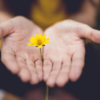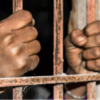By Dr. Froswa’ Booker-Drew
I recently came back to Texas from a visit to my mother’s home in Louisiana. My mother reminded me before the visit to be prepared for the heat and when I arrived, I thought it was actually comfortable.
It’s sad that 93-degree weather would be considered comfortable when I had left an area that was experiencing 106-degree temperatures. It’s amazing how such a small difference in temperature had such a huge impact on my experience.
It could have been easy to get into a sparing match to prove that it was hotter in Texas, but the reality is that both of us were experiencing discomfort.
I often marvel at how we will make comparisons about others’ experiences to prove how ours is actually worse. Pain is relative and to each person, the way in which it is experienced is different, but it still has an impact.
We can get so caught up in trying to prove what is worse that we lose sight of the fact that we are in pain—we will focus more on the result than take the time to pay attention to the source of the problem.
This not only happens in our personal lives, but you see this on a societal level. To say that all lives matter is only true when we recognize and make changes that address the many lives that are ignored, silenced, and marginalized.
When we begin to see the pain of those around and consider the source of the pain, getting into a sparring match over whose pain is worse doesn’t solve the problem and doesn’t create a remedy of the continuation of the pain.
Something that we are missing as a society is empathy. “Empathy is the capacity to understand or feel what another person is experiencing from within their frame of reference, that is, the capacity to place oneself in another’s position.”
Instead, we spend so much time trying to justify our positions instead of listening, understanding, and offering compassion. I think because we have become so individualistic in our ways of thinking, we fail to see the symbiotic relationship that we all have to each other.
I strongly believe we can learn some powerful lessons from nature. There are species that are vastly different from one another who understand that their survival depends upon the other.
We must understand that if one of us wins, it’s an opportunity for us all to win but the same applies if one is hurting. Whether directly or indirectly, there are consequences that we will all endure.
Scripture reminds us that we have a responsibility to one another. It begins in not only how we treat others, but it starts in our thinking about one another. “Finally, all of you, be like-minded, be sympathetic, love one another, be compassionate and humble.” (1 Peter 3:8) We are “as God’s chosen people, holy and dearly loved, clothe yourselves with compassion, kindness, humility, gentleness and patience.” (Colossians 3:12) And instead of focusing solely on how we are affected, we should be concerned with the impact on others through both good and bad. “Rejoice with those who rejoice; mourn with those who mourn. (Romans 12:15)
It is amazing how the heat has a way of making us lose our compassion toward others.
Research in the 1990s “proposed the ‘heat hypothesis’ to explain the fact that violent crimes go up in the summer (the US murder rate, for example, rises by about 2.7 percent), and that aggressive acts are often more common in hotter countries – the basic idea being that warmer temperatures make us more prone to losing our temper and lashing out.”
Just as it is hot and we are all impacted, some more than others, we must begin to not only focus on how we are affected but realize that our pain isn’t an opportunity to minimize the experiences of others or attack them.
We have a real opportunity to demonstrate God’s love by listening, understanding, and offering compassion even when we are affected as well. At the end of the
day, we are all uncomfortable and by focusing on the problem solely doesn’t provide a solution.
The solution? Offer love, listen intently, extend grace and empathy.
Dr. Froswa’ Booker-Drew is the President of Soulstice Consultancy, LLC. To learn more about her, visit drfroswabooker.com.







You must be logged in to post a comment Login